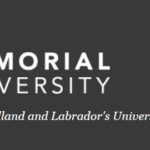World Bank Drivers of Gender Inequality in Middle East and North Africa – Call for Proposals
When is Application Deadline?
27th June 2022
Tell Me About Award:
The World Bank’s Office of the Chief Economist for the Middle East and North Africa (MENA) region has launched a research program on “Drivers of Gender Inequality in Middle East and North Africa.” The program aims to produce a series of academic research papers. The main objective of the program is to build a fresh body of empirical studies on the drivers of gender inequalities and find evidence on what works to close the gender gaps in MENA. This accompanies another research program on “Margins of Adjustments to Labor Market Shocks in MENA.”
The widening gender gaps resulting from the COVID pandemic have adversely impacted women’s incomes, employment, educational opportunities, and poverty while increasing unpaid work and care burdens. The program welcomes submissions of research proposals to be sponsored by the program.
The Research Program team is thus seeking research proposals on the following broad topics:
- What Are the Drivers of Female Labor Market Participation?
The goal is to understand the underlying factors contributing to women’s low economic participation in the labor markets. This could include unpaid work and care, discriminatory social norms and gender roles, misperceptions, and behavioral change in particular groups, including men, gender pay and asset gaps, education and skills mismatch puzzle, glass ceiling, and glass wall – invisible barriers preventing women from advancing their career and moving into male-dominated fields and jobs – access to and use of digital, and safe public transport.
2. How Important are Measurement Issues for Empirical Indicators of Female and Male Labor Market Outcomes?
The extent of women’s economic participation depends on how it is measured and who is doing the measuring. Important research areas could include the definition of work, unpaid work and care, informality, and impacts of measurement errors on female labor force participation (FLFP).
A particular focus would be on collecting and disseminating quality gender-disaggregated data, improving household survey designs to capture gender-specific control and ownership of economic and financial resources, and use of unconventional data.
3. How Does Inequality in the Distribution of Economic Resources Affect Labor Market Outcomes?
The goal is to understand the relationship between the distribution of asset ownership, access to and control of productive assets, and women’s economic participation in the labor market. This could include intra-household inequality of asset ownership that may affect decision-making power, property rights, legal and inheritance law, climate change and fragility, and green jobs.
What Type of Scholarship is this?
Call for papers
Who can apply?
Key criteria for selecting authors and coauthors include the following:
- Proven track record of publications in peer-reviewed journals.
- Demonstrated expertise in challenges of gender inequality in MENA.
- The research proposal must be feasible, data are available, and methods are clearly explained.
How are Applicants Selected?
To qualify for the research support, authors of accepted proposals are expected to submit the first drafts of their research papers to the research program for feedback by January 30, 2023. Best papers might be selected for a conference organized by the research program in March 2023. Revised drafts of accepted proposals are expected by June 16, 2023.
Where will Award be Taken?
Online
How Many Scholarships will be Given?
Not specified
What is the Benefit of Scholarship?
Only authors of the accepted proposal(s) will be notified. For each accepted proposal from authors outside the World Bank, the author(s) will receive a research support amount of US$7000.
How Long will Program Last?
May 05-June 27, 2022
How to Apply for Scholarship?
Interested authors should submit their research proposal(s) via email at mnagender@worldbank.org. Each research proposal should be at most 1500 words (approximately three single-spaced pages), excluding References. They should consist of at least three sections:
- Motivation: This section should provide a clear statement of the issue(s), the knowledge gaps the research will address in light of existing literature, and how the proposed research will contribute to knowledge about the subject.
- Methodology and Analysis: This section should identify the research question, the hypothesis to be tested, and the research methodology. If data are used, the proposal should describe the data used in the analysis. In addition, it should describe the analytical technique (e.g., econometrics) and explain the rationale for using the selected methodology.
- Research Team and Timeline: Please list the names and affiliations of the research team expected to be involved in the research and the research timeline.








